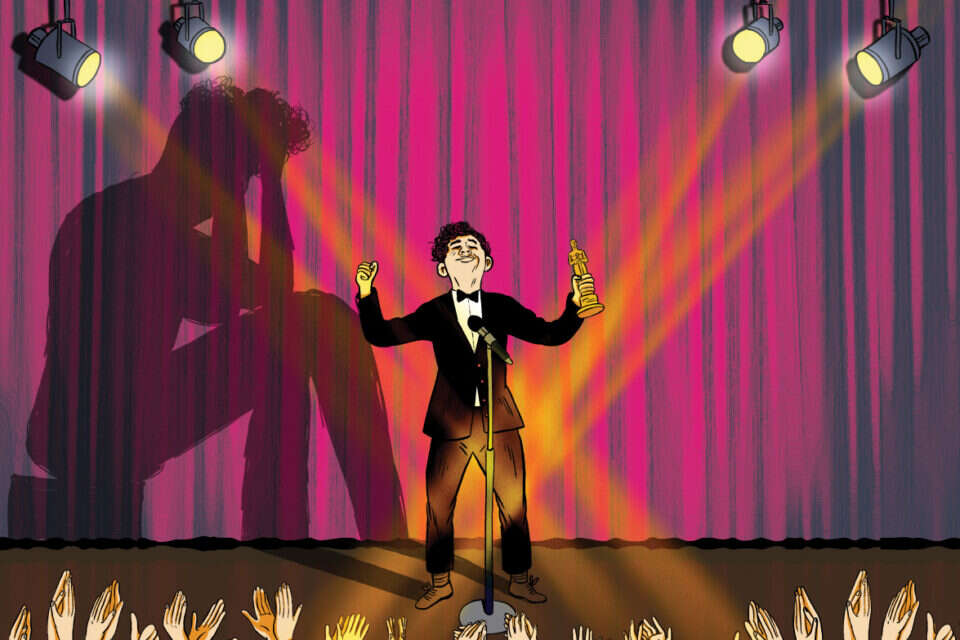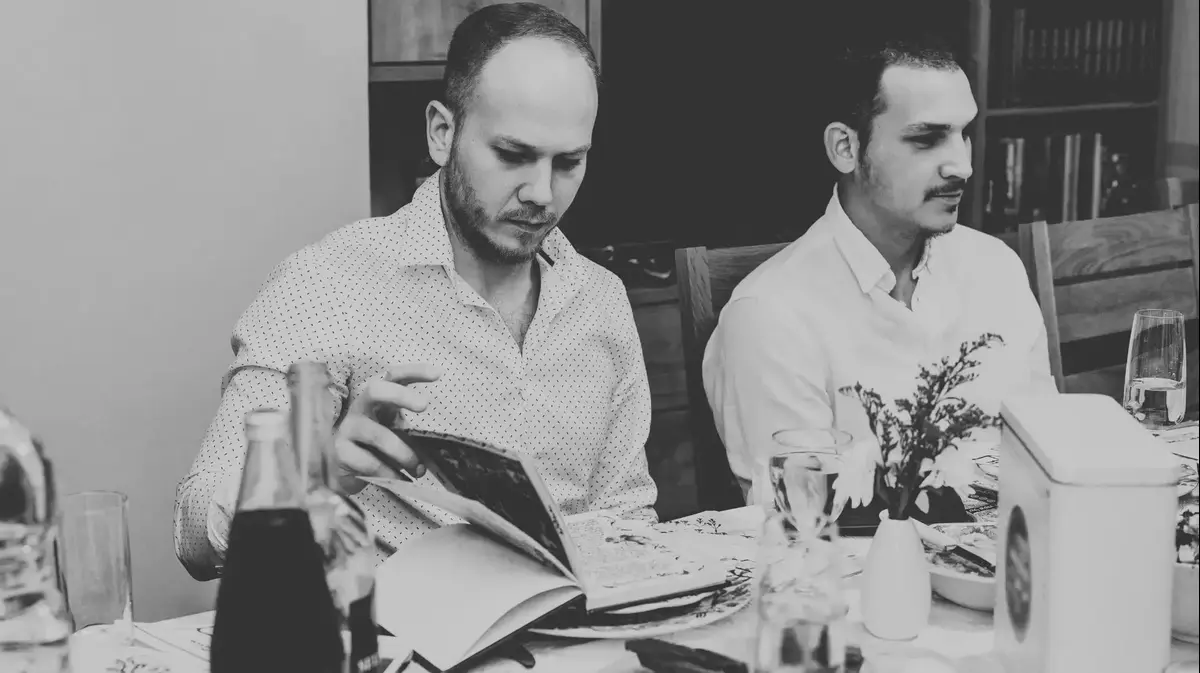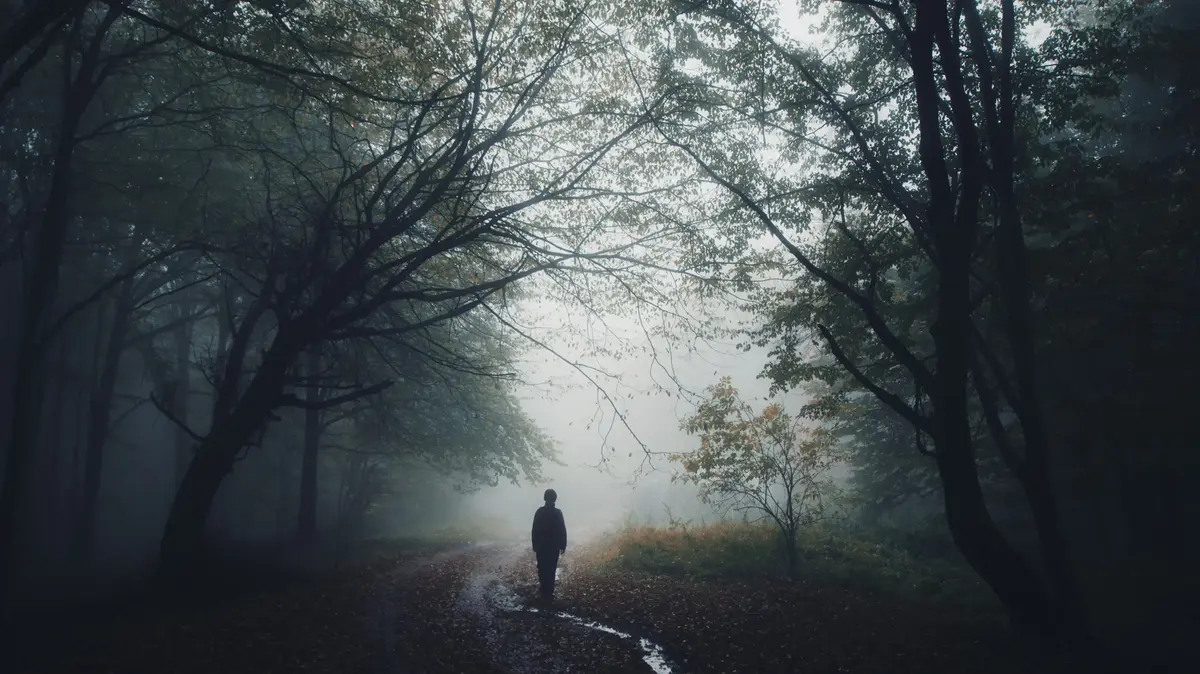A year ago, the media and social networks raged around a precedent in the world of sports.
Simone Bayles, a medal-winning American gymnast and National Mami in her country, chose to announce at a press conference her retirement from the final stage of the team competition at the Tokyo Olympics, in which she was supposed to participate.
Biles, then 24 years old, announced that she intended to avoid participating in the finals, since she wanted to focus on her mental health, which was deteriorating due to the pressures of the competition.
In an interview she gave to NBC last October, the athlete said that she is "still afraid to go to exercise" and that she is "in a constant personal struggle".
On the Internet, as on the Internet, the discussion (not always civilized) about her dramatic announcement ranges from praise for her willingness to deal with the sensitive issue publicly and not to submit to social dictates of success, to open contempt.
The caterers claimed that this is another sign of the "snowflake" generation, young people who are supposedly too sensitive to life's challenges, who demonstrate a low work ethic compared to previous generations, and who tend to suffocate in stressful situations and take it easy on themselves even in situations that don't always allow it.
And Bayles is not alone.
Recently, more and more artists, especially musicians and actors, allow themselves to take their foot off the gas pedal for a moment, stop their current activities and announce a break due to burnout or mental struggle.
In 2017, two months after visiting Israel, the singer Justin Bieber (28) canceled the last 14 performances of his concert tour to promote his album "Purpose", for exactly the same reasons - and in a similar way to that of Bayles in his media accessibility.
"I let resentment, jealousy and fear run my life," he said then, after a year and four months of wandering between continents, during which he appeared 150 times in 40 countries.
"I've learned that the more you appreciate your calling, the more you want to protect it. The fact that I'm taking this time off means that I want to stabilize mentally, so that I can be the person I want to be, the husband I ultimately want to be and the father I want to be."
You can believe him, considering the degree of exhaustion he already showed in that concert at Yarakon Park.
Justin Bieber performs in Israel in 2017.
Canceled the last 14 performances in the same round, because he could not stand the mental pressure, photo: Koko
"kind of lost it"
Not only young people are part of the expanding phenomenon.
Last September, just before he was supposed to go on tour with his old band Faith No More, the band's lead singer, Mike Patton (54), announced the complete cancellation of all their planned performances.
"I don't feel like I can give what I have to give at this point," he wrote at the time.
"I have problems that have worsened following the epidemic and that are challenging me right now... I'm not going to give you less than my 100 percent. I apologize to our fans and hope to make it up to you soon. The band supports my decision, and we hope to overcome this obstacle in a healthy way."
In later interviews, Paton explained that the lockdowns brought about by the corona virus, which caused him (and all of humanity) to lock himself in the house, created or awakened a social anxiety that may have always been lurking in him.
"I was afraid of people," he said in an interview last month.
"I kind of lost it then, and it wasn't a pretty sight. A few days before we were supposed to go on tour I said to my friends, 'I don't think I can do this.' Somehow all my confidence fell apart. I didn't want to be in front of people. Which is weird, Because I've spent half my life doing just that."
In the same month, Max Columbi (31), the lead singer of the band Oscar and the Wolf, also announced on social media that he was canceling three concerts, because he had to work on his "anxieties and depression".
One of the performances, by the way, was planned to take place in Israel (something that, with all the openness to the subject today, will still make the producers "think twice" about bringing him to Israel next time, says a source in the local industry).
"Some of you have noticed I've been a little OFF lately," Colombi wrote to his fans.
"Indeed, I'm not well. I've been struggling with anxiety and depression for a while now. I've reached a point where I can't go on like this."
He also wrote that he intends to seek professional help to find a solution to his problems.
"I am determined to get better and recover," he concluded.
"For me, for my family - and for you."
"I am determined to get better and recover."
Canceled a concert in Israel, Max from Oskar and the Wolf, photo: PR
There is also a long list of celebs who took a break from social media activities due to fear of damaging their mental state - a reasoning that was previously considered taboo and well hidden under piles of PR. The list includes names such as Ed Sheeran, Lizzo, Tom Holland and Pete Davidson, who for a certain period left the Social media due to mental tension and stress Just this week they were joined by Jonah Hill, an actor associated with silly (and great) comedies such as "Superbad", alongside award-winning films such as "The Wolf of Wall Street" and "Moneyball".
Hill has announced that he will not promote his new documentary "Stutz", which deals, ironically (and perhaps not so much), with mental therapy in media interviews.
"I recently finished directing my second film, a documentary about me and my therapist, which explores mental health in general," he said in a press release that explained his lack of cooperation with the media.
"The whole purpose of making this film was to make the mental therapy and the tools I acquired through it accessible to a wide audience, for purposes of use through an entertaining film.
"During the journey of self-discovery documented in the film, I came to the realization that I had spent almost 20 years in a continuous experience of anxiety attacks, which are exacerbated in media appearances and events that require standing in front of an audience. I look forward with enthusiasm to sharing the film with audiences all over the world, in the hope that it will help those who are in the struggle. Despite this, You will not see me promoting the film, or any of my subsequent films, as I am taking an important step in protecting myself. If I made myself sick as a result of promoting it, I would not be true to myself or the film."
Simon Bales.
She provoked a public debate that ranged between praise for her brave march and contempt, photo: AP
"Success is survival"
There is no doubt that there is reason to suspect that this is a publicity stunt by celebrities, just as for some names on this long list "treatment of mental problems" is a code name for admission to an alcohol or drug rehab facility.
But it's hard to argue with the facts: in recent years we are exposed to more and more cases where famous people in their field want to stop everything, relax and rest.
If you don't take care of your problems, they say - your problems will take care of you.
"You have to understand that when you are on tour, the vast majority of the conduct is not focused on getting on stage," explains the Israeli singer and creator Yael Deckelbaum.
"You constantly have to be in communication with people, whether it's a band or whether it's production people or completely new people. 98 percent of the time is spent traveling or in some hotel, depending on what conditions you're traveling in, and you're constantly dealing with packing, airports, and getting to the next destination. That's what which is mainly done in a tour. The show itself takes up no more than two percent of the time. Many times on tour you have to maximize the profit, so you push a lot of shows, because every day you don't perform costs money, especially if you travel with a band. Touring can be a very demanding thing ".
Deckelbaum (43) is intimately familiar with the mental demands that artists have to face, and experienced its consequences herself during the international boom in her career.
Luckily (and this is a strange sentence to write or read) - just then the corona epidemic broke out.
"The time when I most needed to stop in my life was simply a miracle for me, because the whole world just stopped," she says.
"I had a crazy wave of success that I didn't know before, of the international kind. Something happened after I performed with Susan Vega and she sang my song 'Mothers' Prayer.' in Europe and Israel at the same time.
"I left no room for myself."
Yael Deckelbaum, photo: Asaf Eini
"I got to spend most of the time on airplanes, the 'Mothers' Prayer' reached millions of views on YouTube, so many doors were opened for me - and I didn't know how to say 'no' and stop. I really reached an end, after four years of complete burnout in which I traveled all over the world and didn't leave anything to myself place within this activity.
"I understand very well the artists who choose to stop in order to keep their spirits up. I had a very deep feeling that I had to stop, and I didn't have the courage to let myself go, leave everything, rest, take care of myself and put me first priority. I reached a state of exhaustion, I used all My reserves. I went to the doctor in retrospect, and he told me that my adrenal glands were worn out (improper functioning of the glands makes it difficult to deal with stressful situations and is linked to depression and anxiety; ref).
I was constantly in a state of high tension, and eventually, the exhaustion took its toll.
I've reached a point where I can no longer move."
While for others the corona closures and the shutdown of the cultural world marked a terrible episode of loss of livelihood and connection with the audience, for Deckelbaum they heralded a period of peace and recovery.
She completely stopped recording her next album, something she admits she wouldn't have done if she hadn't stepped off the professional roller coaster for a moment.
"I could afford to rest. I happened to enter a cabin in the settlement of Kalil in the north a week before the first closure, and I stayed there for a year and a half. Being in nature was also healing for me. The whole world was in the movie, and I was with the flowers and the trees and the flowing water. In the time leading up to that I recorded an album, something grandiose with women from all over the world. I stopped working on it and put it aside. I believe that our personal well-being should be weighed in, and then we will have time to process experiences and enjoy the journey - not see it as a burden."
Dr. Ilan Rabinowitz, photo: Eric Sultan
The specialist psychiatrist Ilan Rabinowitz is known to the general public as "the therapist of the celebs".
Over the years, the most well-known names in the fields of culture, entertainment, politics and economics have come and gone in his clinic, and he has helped a host of celebrities and huge stars deal with what he sees as "required and natural results" resulting from a combination of personality structure, professional choices and success.
"There is something common to all the people who go far and reap achievements in their fields: for all of them, success is not an option, but survival. Failure is like death," he explains.
"All the people who managed to make a mark, conquer peaks and establish a position in a certain field, from the beginning have an endless drive. The source of this drive is that everyone has some kind of disadvantage. For all these people, the road was not easy. They tend to think that everything went easily for the celebs, that their road was paved, And only thanks to their talent, uniqueness and originality they got far, but that's not enough.
"They were all hardworking, perfectionists and goal-oriented. Their minds work 24/7, and there is always self-criticism and reconstructions of conversations and situations and 'what can I do more', 'how did they see me', 'what did they think of me'. They are controlling and involved In their work and art in every detail, they are very focused and will be careful with the tip of iodine.
"This means that they are very dependent on the results they achieve. If the results are satisfactory, if they receive resonance and recognition, and if their work is applauded or translated into success - they will be satisfied. But every criticism, every failure, even the smallest, causes them to have emotional upheavals Very large. Their proportions lead to a situation where every small failure, every stone thrown into the pond, creates a hurricane. Every criticism, every unfavorable article, will cause great heartache. So their advantages and disadvantages come from exactly the same place."
In an article dealing with the subject in "Rolling Stone" magazine, a study conducted in 2018 by the American Music Industry Research Association was presented.
The study found that 50 percent of the musicians reported struggling with symptoms of depression, compared to less than 25 percent who reported this in a study of the general elderly population.
Almost 12 percent of the musicians reported suicidal thoughts.
A similar study conducted in Sweden in 2019 reached even more extreme results: 75 percent of independent singers, it claims, faced stress, mental strain, anxiety and depression.
There are neurological and personal explanations for this (similar to those presented in this article; p.a.), but it is difficult not to link the data to the fall of the major record companies and the little profits that the various listening platforms generate for artists, from Spotify to Apple Music. These make artists rely on concert tours as the main component in their income, and in fact in their survival.
"We've really reached a tipping point where people who work in this industry, artists as well as production crews, have become a commodity," Kevin Layman, founder of the traveling music festival Warped, told the magazine.
"People today work twice as hard to stay in the same position. The tension only becomes higher."
Rabinowitz: "With artists, and this applies to both singers and actors, the inner psyche is much more turbulent. We call it in professional language 'effective lability'. They have much more fluctuations in the psyche, the range between the high and the low is very large. The higher they can go - That way they can also go down.
"The same artist, as he conquers Caesarea and on stage he feels bursts of adrenaline and happiness that only he can understand, can be in a huge slump because he opened a newspaper and some critic killed his song or his new show.
In their inner feeling, the damage to self-confidence and quality of life is very dramatic."
Mike Patton.
"I have problems that have aggravated and challenge me", photo: GettyImages
"You can't hide today"
Rabinowitz disagrees with the assertion that this is a product of contemporary culture, which sanctifies rapprochement and quick raising of hands.
"On the contrary, today's generation is no weaker. Many times we experience nostalgia for the fallen generation and say, 'Once upon a time, people could withstand much greater pressures.' Easy on the keyboard, in my opinion, he faces more severe pressures than previous generations. They also have nowhere to hide. Wherever they want to take a break - there will always be someone to take pictures and document them, and it will reach the local and international media."
The crowd seems to be taking the extreme step of an artist announcing a timeout well.
"There will always be those who will make fun, but I think the majority of the public accepts them with great love."
From your knowledge, do managers and agents nowadays understand and contain the mental fluctuations of artists more, compared to the past?
"I have seen artists in the past who sat with me after squeezing themselves until they reached extreme mental and physical exhaustion, until a collapse came. But I could never point to an artist who was like material in the creative hand of his manager, because many times the feeling was that the artist brought it on himself. Because He, especially in the past years, could not say 'stop, I don't need anymore' - because of his need to excel, to succeed, to satisfy the manager, to fulfill the contract, to satisfy the audience. It is he who did not allow himself to stop.
"It's not like those Charles Dickens stories, where the manager scolds the artist and demands that he 'go on.' That he will lose the momentum and disappoint, so he doesn't allow himself to make a cut."
In the past mental breakdowns of celebrities were a taboo that everyone tried to hide.
"Today I see a change in my perception, because in the past, even when an artist was brought to me in the dead of night, while he was collapsed, everything was done in the dark. The artist had a feeling of 'how come I collapsed in the middle of a concert tour, what is happening to my body, why is he betraying me?'
What I see today is that there is legitimacy for the coach, the athlete, the player and the manager to say, 'I need a break, I need help. I've tried too hard, I've reached the limit of my ability.' Today, more than ever, he knows that his body speaks for him, and it doesn't let him down from him. The weakness only adds strength."
Dr. Rabinovitz may not have encountered pressure from promoters or managers, but in the legacy of the rock and roll battle there is no shortage of stories about artists who were enslaved to managers or record companies, unable to get off the Ferris wheel. From Elvis Presley, through the young Michael Jackson - to Guns and Roses.
In his autobiography, Guns and Roses bassist Duff McKagan tells about his chaotic tour with the band, which lasted more than three years and was riddled with scandals, fights, overdoses, alcohol and burnout - after which the band broke up.
"If any of the people put in charge of the band really cared about the health of any of us," he wrote in his book, "then Gunz would have been pulled from the tour, off the road, and put into treatment years ago. Hey, band manager, maybe start managing the band instead of worrying about the record company Will you be fired if you tell her what really needs to be done about us? Soon you won't have a band to manage, if you keep passing on the responsibility."
Jonah Hill.
"The goal - to make mental health care accessible", photo: GettyImages
"With the therapist the feeling is pleasant"
In recent years, as mentioned, a big change has been felt in the ability of the audience, the media and also the professional circle to accept mental burnout as a legitimate reason for stopping the activity of artists.
After all, every artist was and remains a gold stock worth keeping.
"The artist is a business partner, it's a joint business for both of you," explains the manager and PR person for some of the most active and successful names in Israeli music today.
"It's like you partner with a person in a pizzeria. You want him to function and be committed, to be loyal, effective and also smile in the business partnership between you. That's how you want the artist you work with to be as well. All the more so when he is at the front of the stage, in media exposure to the audience, and influences About a lot of people. You want him to be in a healthy state of mind.
"In general, in today's era there is much more awareness of the issue of mental health. If it used to be a shame to go to a psychologist or a psychiatrist, I think that the absolute majority of artists today use one form or another of mental assistance, in order to maintain themselves and the right doses of workload."
As a manager, do you make sure your artists are in treatment even before they start to show signs of collapse?
"Each case is on its own merits, but today, those who feel that it is going there - already turn to treatment on their own accord. In an era where it is very difficult for famous people to trust others, who will not leak materials to the press or spread rumors, so a therapist, psychologist, psychiatrist or coach, that they are neutral and maintain confidentiality, give a more pleasant feeling. They are the only people with whom you can really share things that no one else shares."
What do you think of the argument that this is another evil of an overly spoiled generation?
"Let's say that the day you become Justin Bieber, that you have zero privacy and that you work at a high rate from the age of 13 until today, until you become like him one of the most famous people in the world - you will not let anyone tell you that you are spoiled."
shishabat@israelhayom.co.il
were we wrong
We will fix it!
If you found an error in the article, we would appreciate it if you shared it with us









